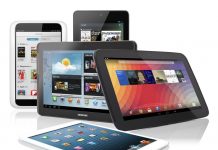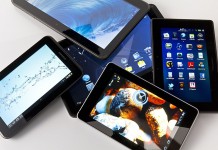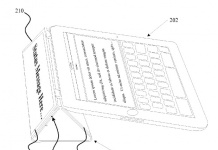 On the New York Times “Bits” blog, Nick Bilton posts the story of what happened when he tried to read a Kindle or iPad at restaurants that don’t permit computer use during selected hours, or at all:
On the New York Times “Bits” blog, Nick Bilton posts the story of what happened when he tried to read a Kindle or iPad at restaurants that don’t permit computer use during selected hours, or at all:
I looked up at [the coffee shop employee] with an incredulous look and replied, “This isn’t a computer, it’s an e-book reader.”
He then told me that the “device” in my hand had a screen and required batteries, so it was obviously “some variation of a computer.” The coffee shop, I was told, did not allow the use of computers.
He then goes on to discuss reports from the Annenberg School’s Center for the Digital Future, and Amazon itself, on how readers are moving away from print in favor of digital, and so on.
But he doesn’t ever bring up the real reason coffee shops don’t let people use computers. It’s not out of any form of luddism or hatred of technology per se; it’s undoubtedly the same reason that the Panera bakery/coffeeshop chain limits the use of its wifi to a half-hour per MAC address at the height of the lunch rush—because otherwise people who use those devices tend to just sit around and keep using them, taking up space that is needed as more customers come in.
Yes, the Kindle and iPad get lumped in with computers. (I wonder if someone reading on an iPhone would be treated the same way? “This isn’t a computer, it’s my cell phone.”) And perhaps the employees could stand to lighten up a bit. But it’s easy to see why a busy location wouldn’t want someone to hang around taking up space for whatever reason. Perhaps someone ostentatiously reading a print book might be asked to leave after he finished eating, too.

































Wow! I would have been outraged. For my entire life when dining alone I have read a book or magazine. Ever since I’ve had a Kindle, I have read from it. All I ever have gotten is positives, questions about it, etc. In one bagel restaurant, the manager came over and engaged me in a long Q&A about it and said it sounded wonderful, that he would like to get one. No implication of moving me on and out.
In reading the comments attached to the original article, I note some hostility toward people who move in with their laptops and stay for hours. This I understand. I’m only reading while I am waiting for my order, and during the time I am actually eating. Then I leave. If I want to read for long periods of time, there are better places to do it than a straight chair in a room which often is noisy.
i would ask for my money back on whatever i ordered and head out the door, never to return. also, i would tell everyone i know about the policy. this kind of ridiculous behavior from establishments does more harm than they realize.
Time for a cover like this:
http://www.etsy.com/listing/39388395/carry-your-kindle-hidden-inside-a-real
I can completely understand the problem. People who sit around for an hour with one coffee on their table. It’s insulting to the shop. But it’s also a difficult one to solve for the very reason behind Mary’s and Frank’s responses. Do they have the same policy for people who sit with books ? Newspapers ? or maybe the device thing has triggered a new awareness.
I wonder if a fixed minimum purchase could be introduced for people with ‘devices’?
The cafe near my house has a rule: for a minimum purchase, they’ll give you the wireless password. They also set aside some tables as “laptop-free zones” to give priority to people ordering food.
There’s also the Peet’s Coffee chain around here (and in many parts of the country). With your purchase, you’re given a code for two hours of wifi access.
Panera’s solution seems reasonable too.
It seems to me that this “problem” is solvable with some creativity. No rudeness to customers, splitting hairs, or philosophical discussions of what constitutes a computer required! Unless everybody really enjoys that sort of thing.
initially, coffee places actually WELCOMED people with laptops, etc., in their stores, because it showed people outside that — hey — they were busy, so it must be a good place to go. now that coffee places are social gathering places again, they are kicking people with mobile devices to the curb? that’s gratitude for ya. i’d be interested to see where they draw the line. if i’m reading on my ipad, i’m out, but if i’m reading the same thing on my phone, that’s ok? i’m with Andrea: i’d make an ipad book cover that looks like a book. or else i’d ask for my money back and i’d walk.
Franko – I don’t believe any business wise cafe did indeed welcome solo visitors with laptops. Only the naive ones perhaps. In addition I would guess that the loss of custom by any cafe that you chose not to frequent would be only too delighted as they would lose less money on your visits 🙂 Cafe’s have to turnover tables to make any money and people who hang out without spending a reasonable amount are killing their local cafes.
I think the cellphone doesnt comparison doesnt apply. I think most people cannot stand to read for long periods on such a small screen. Limiting wifi acces in time would solve a lot of problems.
As a matter of interest Tony I have read five full novels in 2010 on my iPhone. I read for an hour or more at a time on my travels. Times are a changing 🙂
Limiting the wifi is one strategy but it doesn’t really allow for customers who are paying their way.
Tony, I read law and business books on my iPod Touch in retail lines, waiting rooms, and restaurants if i am eating alone. i finish about one a month comfortably. i am (in years lived) a long way from young. Both my (adult) kids read on their cellphones.
It’s a common problem for small restaurants and coffee shops. People buy something small and then squat there for hours, costing the place a fortune. I used to go a very nice coffee shop but no longer. It got ruined; the Persians took up all the tables and chairs, and would hang out there and there was nothing for any legit customers. So I sympathize with the shop, and consider the shocked reactions to be coming from hypocritical a..holes.
Ali – while your opinion may be reasonable I find it disappointing that you find it so necessary to use such unnecessarily abusive language in a discussion about eBooks and cafes.